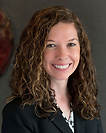Bankruptcy Court Sanctions Lawyer, But Appeals Court Reverses and Rules that Lawyer’s Aggressive Advocacy Did Not Cross the Line
In a recent case, a lawyer was sanctioned by an Ohio bankruptcy judge for his conduct in connection with an adversary proceeding he brought on behalf of a client against a Chapter 7 debtor. The lawyer was vindicated, though, after the Bankruptcy Appellate Panel of the Sixth Circuit (the “BAP”) reversed the bankruptcy court on appeal.
Background Facts
The case originated in state court after the adversary proceeding plaintiffs (the “Plaintiffs”) brought a state court action against the defendant/debtor (the “Defendant”). The Plaintiffs asserted claims against the Defendant, their neighbor, for intentional infliction of emotional distress, civil conspiracy, and malicious prosecution.
After the state court lawsuit was filed the Defendant sought bankruptcy protection. The Plaintiffs, through their lawyer (the “Lawyer”), sought relief from the automatic stay to continue their lawsuit in state court. The Lawyer also filed an adversary proceeding seeking denial of Defendant’s discharge and a determination that Plaintiffs were owed a non-dischargeable debt. Defendant counter-claimed in the adversary proceeding alleging abuse of process with the purpose of harassment.
The Plaintiffs withdrew their motion for relief from the automatic stay and filed a motion to dismiss the adversary proceeding. The bankruptcy court entered an order dismissing the adversary proceeding. In the order, however, the bankruptcy court entered - sua sponte (i.e., on its own accord) - a “show cause” order as to why the bankruptcy court should not find that the Plaintiffs and their Lawyer violated Bankruptcy Rule 9011(b) by filing the complaint and prosecuting the adversary proceeding and by seeking relief from the automatic stay.
Lawyers for both sides filed briefs and submitted supplemental affidavits and a hearing was held on the Order to Show Cause. At the hearing, the Lawyer requested and the bankruptcy court agreed to limit any sanctions levied to the Lawyer only and not to sanction Plaintiffs.
Ultimately, the bankruptcy court entered an order (the “Sanctions Order”) finding that the Lawyer had repeatedly violated Bankruptcy Rule 9011 and, among other sanctions, ordered him to pay over $26,000 to Defendant’s lawyer for legal fees. The bankruptcy court also referred the matter to the U.S. District Court for the Northern District of Ohio and the U.S. Attorney for consideration as to whether the Lawyer’s conduct should be criminally prosecuted. The Lawyer appealed.
The Appeal
The BAP considered two primary issues on appeal: First, did the bankruptcy court have the authority to award attorneys’ fees as a sanction when a show cause order is issued by a court sua sponte; and second, were the bankruptcy court’s factual findings in the Sanctions Order “clearly erroneous.” The BAP ruled in favor of the Lawyer on both issues and reversed the bankruptcy court.
It first analyzed the language of Bankruptcy Rule 9011(c)(2) and held that the bankruptcy court exceeded its authority by ordering that the Lawyer pay the Defendant’s attorneys’ fees. Specifically, Bankruptcy Rule 9011(c)(2) only allows a court to award attorneys’ fees as a sanction when a motion is brought by opposing counsel, not when an order to show cause is issued by the court sua sponte. The BAP noted that in some cases an award of attorneys’ fees may be ordered pursuant to a court’s inherent authority, but in this case the bankruptcy court only cited Bankruptcy Rule 9011 as the basis for sanctions.
The BAP then conducted an exhaustive analysis of the factual findings made by the bankruptcy court in its Sanctions Order. Findings of fact are reviewed under the “clearly erroneous” standard. The BAP ruled that the bankruptcy court abused its discretion by relying on a number of clearly erroneous factual findings: “In this case, the Panel has a firm and definite conviction that the bankruptcy court abused its discretion in sanctioning [Lawyer] because it relied on multiple clearly erroneous factual findings. Moreover, the Panel finds that, having reviewed the record as a whole, no reasonable person could agree with the bankruptcy court’s decision.”
Conclusion
While Rule 9011 is an important tool to prevent frivolous litigation, the appellate court decided that the Lawyer’s behavior fit within the zealous advocacy that, while perhaps aggressive, did not cross the sometimes murky line that can lead to sanctions. If you have any questions about this case, please contact Laura Genovich at lgenovich@fosterswift.com.
Categories: 6th Circuit Court of Appeals, Chapter 7

Laura's practice focuses on bankruptcy, municipal law, collections, and trial-level and appeals litigation. In the bankruptcy arena, she represents primarily Chapter 7 trustees. Laura has handled a wide range of trial and appellate matters for individual and business clients and has appeared before the U.S. Sixth Circuit Court of Appeals, the Michigan Court of Appeals, and the United States Bankruptcy Court for the Western District of Michigan, as well as Michigan circuit and district courts across the state.
View All Posts by Author ›Categories
- Financing
- Chapter 13
- Landlord-Tenant
- Personal Property Tax
- Chapter 11
- Estate Planning
- 6th Circuit Court of Appeals
- Property Tax
- Western District of Michigan
- Case Law Updates
- Fraud & Abuse
- U.S. Supreme Court
- Zoning & Land Use
- Eastern District of Michigan
- Did you Know?
- Billing/Payment
- Chapter 7
- Collections
- Alerts and Updates




 Share
Share
